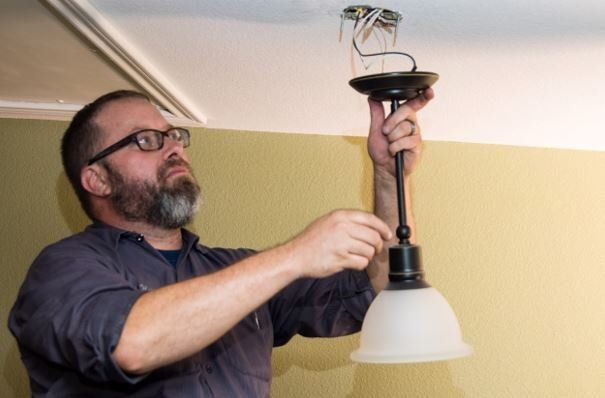Electrical Considerations for Your Kitchen Remodel Project

Many components go into a major kitchen remodel project. As you undertake the planning phase, some decisions you make will affect how your contractors wire your kitchen. Electrical work is very important to how your new kitchen will function. Below are some considerations to keep in mind.
Electrical Circuits
With some older homes, you have to upgrade your circuit system because the original plan obviously didn't take into account modern appliances. However, even in a newer home you may need added electrical circuits. Generally speaking, you need a minimum of seven circuits in the kitchen — typically one for each appliance with a motor.
The two biggest appliances in your kitchen that need their own circuits are the electric range and the refrigerator. In fact, an electric range requires its own range outlet with a 240-volt circuit and receptacle. The next appliance with big energy needs is the microwave. In some instances, you can wire a microwave and garbage disposal on the same circuit, but it's better to use two.
After those four circuits, you need one for the dishwasher and at least an additional two for small appliances. They don't need individual circuits on their own. Instead, the contractors will wire at least two near the countertop where you'll use them. List all of your small appliances before the remodel so you can request more circuits if necessary.
Kitchen Rewire
Another specialized consideration for older homes is the necessity to rewire your kitchen. As noted, older homes weren't wired for modern appliances, so their circuit breakers might not be set up to handle the load. You may even have a fuse box instead of a circuit breaker. The electricians may have to rewire your kitchen to make the electricity safe.
Electrical Outlets
A big factor for you is the location of the electrical outlets. Code requires an outlet at least every six feet, but four feet is better for the kitchen. Your first consideration will be where the big appliances will go. The electric range and refrigerator need special outlets that are only for their use.
Smaller appliances don't need their own outlets. However, small permanent appliances such as the dishwasher, garbage disposal, and even microwave can benefit from outlets at their bases.
Some outlets will require ground fault circuit interrupters, or GFCIs. These types of outlets are required near water, so around kitchen and bathroom sinks, for instance. GFCIs monitor the flow of electricity and protect you from the risk of electrocution by detecting the current and cutting the power if necessary.
Finally, make a mental plan for where the small appliances will go. Many small appliances, such as food processors and can openers, don't have long cords because it's thought they'll be near a handy outlet. Imagine the best operational flow of your countertop in relation to these small appliances.
Lighting Plan
An essential aspect of any kitchen remodel job is a lighting plan, which naturally works within your electrical plan. The main light source will probably be an overhead fixture for general illumination. This typically goes right in the center of the room or above a kitchen island.
Modern kitchens feature task lighting, too. These fixtures are much smaller, but the electrical contractors have to wire for them, too. Task lights typically go above sinks and food preparation areas. You can have your entire countertop area wired for lighting or choose specific areas for food prep.
Most modern kitchens also favor LED lights over fluorescents, which are less efficient. A lighting plan will account for the move from fluorescents to LED lights, a change that will end up saving you money in the long run.
With your lighting plan goes switch placement for all the fixtures. Think about where you want to turn on the overhead light from. Likewise, do you want all your countertop lights to go on at the same time, or do you want them to be individualized?
Permits and Inspections
Very small electrical jobs don't require permits or inspections. However, electrical work for a major kitchen remodel will require both. The inspection will ensure the work was done to local codes. Reputable electricians will acquire the permits and call for the inspections when they're done. However, since they're working on your house, consider inquiring about both ahead of time.











